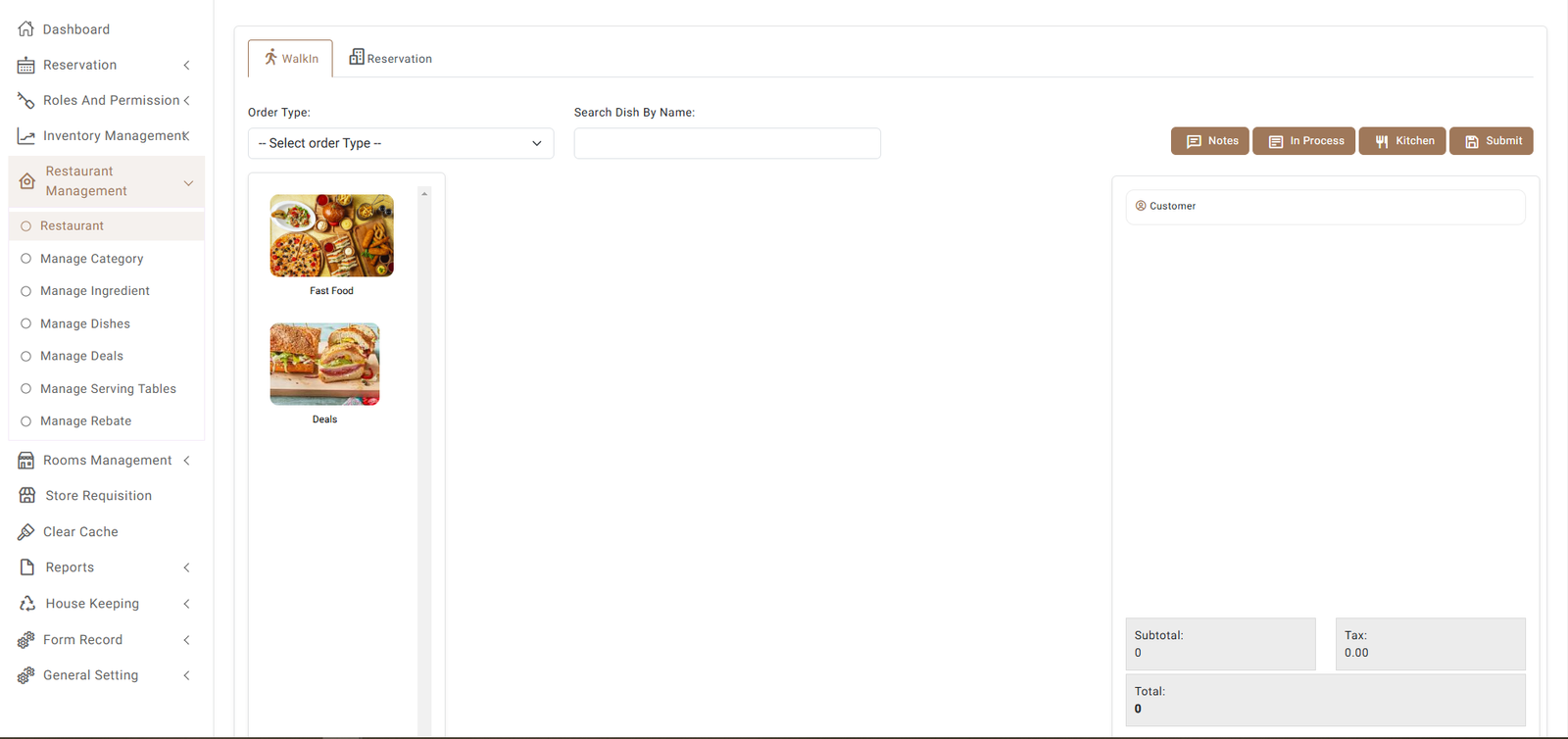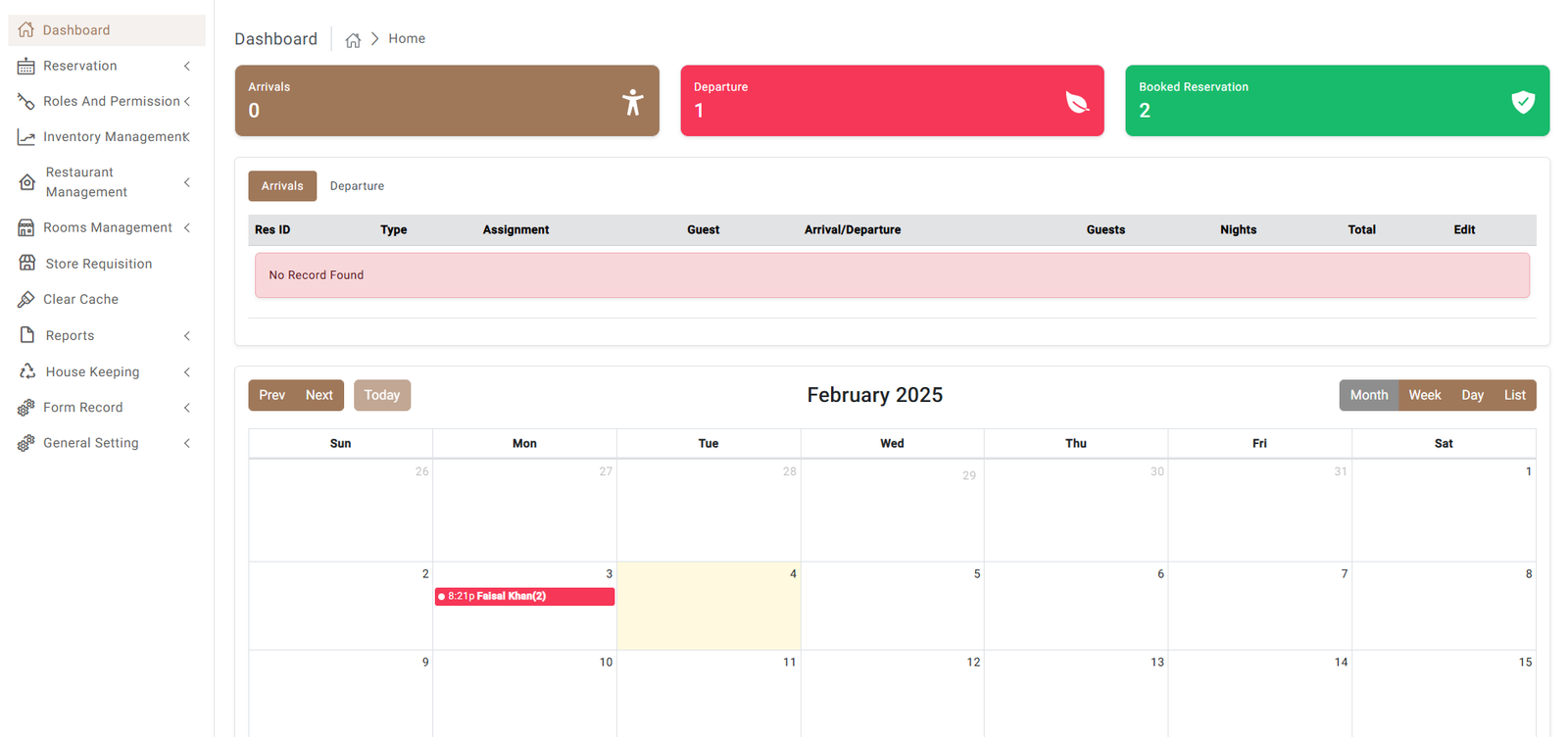-
 Call: +92 (310) 700-05-89
Call: +92 (310) 700-05-89
-
 Mail: info@codehypes.com
Mail: info@codehypes.com
Hotel Management System Case Study
Overview
The hotel management system outlined in the provided menu is a comprehensive solution designed to streamline various aspects of hotel operations. It integrates multiple modules, each catering to a specific domain, such as reservations, housekeeping, inventory, and reporting. This system empowers hotel staff to manage day-to-day tasks efficiently while providing excellent service to guests. The focus on roles and permissions ensures secure access to data, while robust reporting and settings enable informed decision-making and customization.

Key Features:
1. Dashboard:
- Centralized overview of the hotel operations.
- Displays key performance metrics, reservations, room availability, and financial summaries.
- Provides quick access to frequently used features.
2. Reservation:
- Handles room bookings for guests.
- Supports features like check-in, check-out, cancellation, and rescheduling.
- Manages availability and generates confirmation details for guests.



3. Inventory Management:
- Tracks stock levels, reordering needs, and usage patterns.
- Manages the hotel's inventory, including supplies, food, beverages, and housekeeping items.
- Ensures the hotel operates efficiently without running out of essential items.
4. Restaurant Management:
- Handles operations of the in-house restaurant.
- Manages menu items, table bookings, orders, and billing.
- Integrates with room services for in-room dining requests.
5. Rooms Management:
- Tracks the status of all rooms (available, occupied, or under maintenance).
- Manages room assignments, room types, and pricing.
- Ensures efficient allocation of rooms based on guest requirements.
6. Store Requisition:
- Facilitates requests for supplies from different departments (e.g., housekeeping, kitchen).
- Keeps a record of requisitions, approvals, and inventory movement.
- Optimizes the flow of supplies across the hotel.
7. Housekeeping:
- Tracks housekeeping tasks, such as cleaning and maintenance of rooms.
- Monitors room readiness for new guests.
- Enhances communication between housekeeping staff and the front desk.
6. General Settings:
- Configures system-wide settings like hotel information, operational hours, and default policies.
- Customizes features according to the hotel's requirements (e.g., pricing, taxes, and service charges).
- Acts as the control center for system preferences.
Conclusion:
This hotel management system offers a unified platform to handle all critical operations within a hotel environment. It ensures efficiency, accuracy, and guest satisfaction through its modular design and user-friendly interface. From managing reservations and inventory to monitoring housekeeping and generating reports, this system equips hoteliers with the tools to maintain smooth operations.By automating repetitive tasks and centralizing data, the system reduces human error, improves communication across departments, and boosts overall productivity. It’s an essential solution for modern hotels seeking to stay competitive while delivering superior service to their guests.
